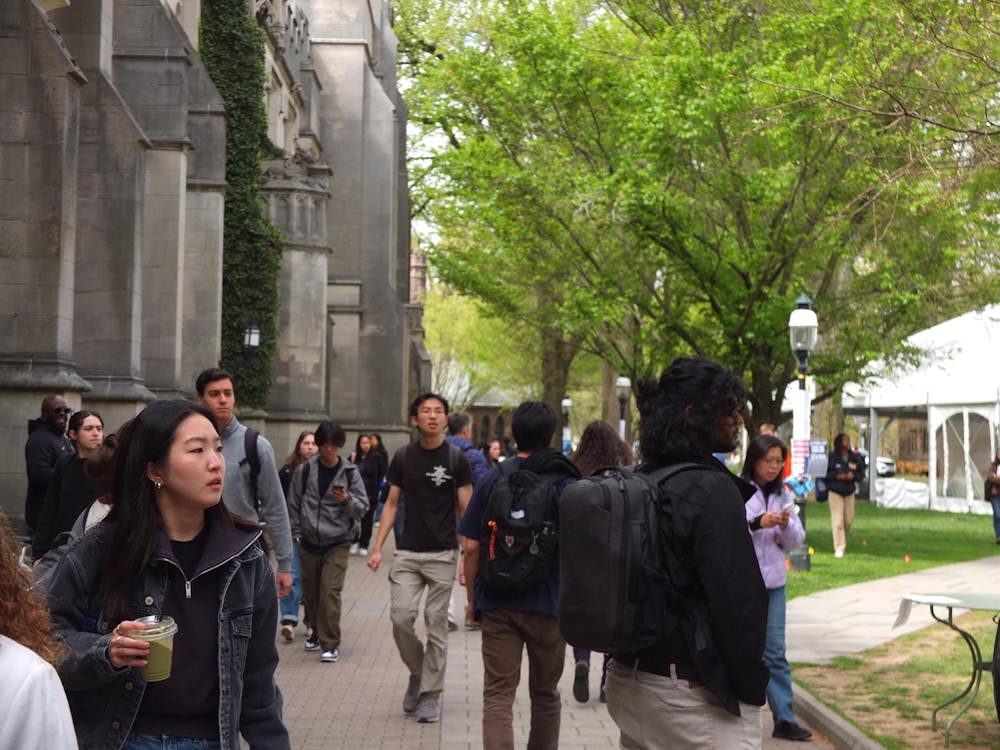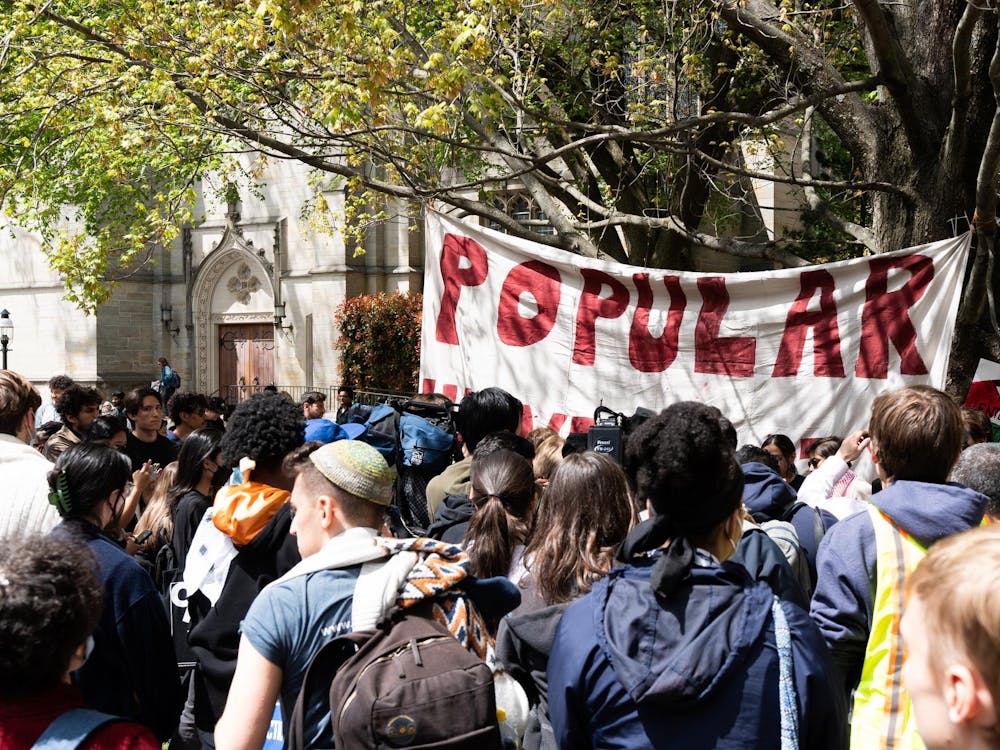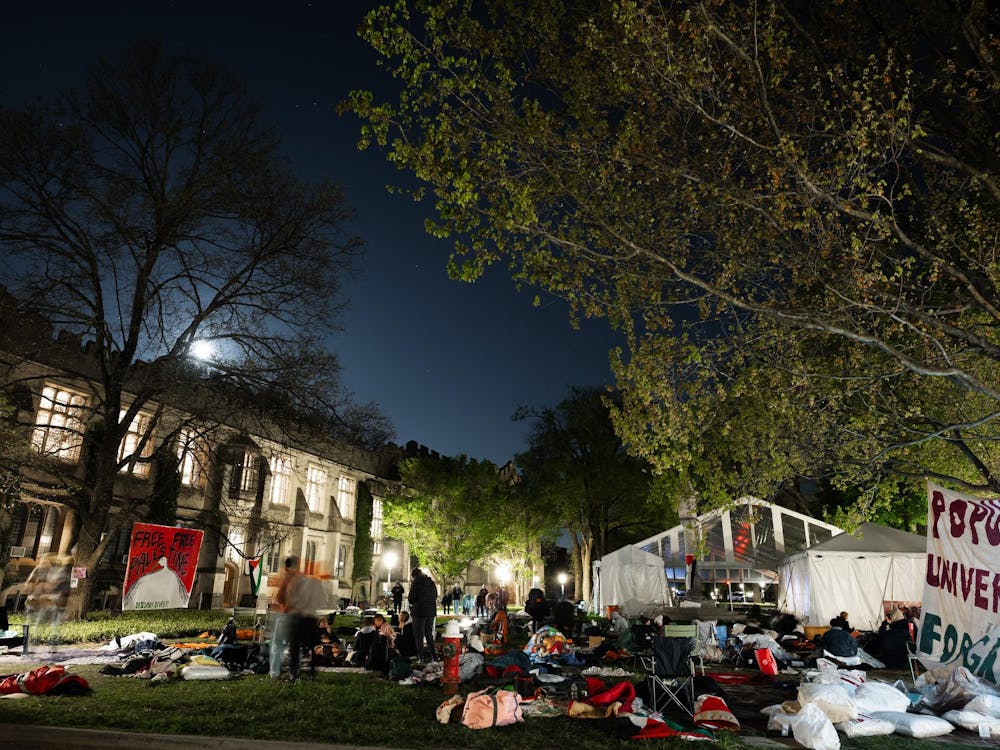At the University, Bryan Bunch ’09 was one of the only open libertarians on campus. He was “not your stereotypical student,” one of his friends said.
Bunch also never joined an eating club, instead opting to live and dine in Mathey College for all four years, in one of the first classes that allowed students to live in their residential college as upperclassmen. His classmates remember him as a generally social guy who loved to debate on political and economic issues, becoming increasingly ideological toward the end of his Princeton career. He is not listed in the Nassau Herald, the University’s senior class yearbook.
Although he had a few run-ins with the police, they were minor. As a junior, Bunch was arrested and fined for possession of an open container of alcohol on Prospect Avenue. In Georgia, his home state, he appeared in court for a few traffic violations, but they were for nothing more serious than forgetting his license or turn signals.
After graduation, Bunch moved back to his hometown of Marietta, Ga. and worked various jobs at UPS and Georgia Power. He took the LSAT a few times and contemplated going to law school, but never did. He continued to debate with his former classmates, sending emails to stay in contact and spark discussions about the latest economic policies or political dramas.
At the end of last year, Bunch became involved in a shocking case. He committed suicide, according to a medical examiner’s report, at the house of a female acquaintance named Sherrie Newton. He also became the only suspect in her murder. Both were pronounced dead in the same location within one minute of each other.
Months after the incident, the Cobb County Police Department has released key records, including autopsy reports for both subjects and preliminary investigation reports. The documentation, which was obtained by The Daily Princetonian through a public records request and totals over three dozen pages, sheds light on the relationship that Bunch had with Newton and their causes of death. Most notably, that Newton had told friends that she had met a young man, presumably Bunch, who appeared to be very kind and had flattered her with compliments.
But the report also admits that the exact extent of the relationship between the two remains unknown and that, officially, no motive has been found. The investigation is ongoing.
Wednesday Evening in Marietta, Ga.
Bunch and Newton first met at their local fitness center, the report reads. The two shared a love for running, the Marietta Daily Journal reported, citing a woman called “Jennifer,” identified as Newton’s best friend.
However, “Jennifer” said that the two “didn’t have a relationship of any type,” having only minor in-person and text conversations.
“Jennifer” also said that Bunch had asked Newton out on a date but that she had declined, saying she was happily married with a son. Newton worked as an insurance professional and was a recent winner of the Person of the Year Award from the Women of Atlanta organization. Bunch lived with his parents about a ten-minute drive away from the Newton home.
The police reports obtained by the ‘Prince’ confirm that Newton said she had met a young man and was “very flattered by his kindness and compliments.” Mrs. Newton’s husband,Marty Newton, was also mentioned in the reports to have suspected that his wife was having an inappropriate relationship with another man. However, the police has not been able to confirm or deny this allegation.

The morning of her death, Mr. Newton observed his wife packing for a business trip. When he returned home from work, he found the two dead. The police department began its response at 6:15 p.m. The Cobb County police declined to release the 911 call relating to the incident, saying that the investigation is still ongoing.
Newton was found partially upright in the entryway of the clothes closet, surrounded by clothes and multiple shell casings. She was wearing a black sleeveless shirt and black pants, all stained with blood. The suitcase was open on the bed.
She sustained two gunshot wounds, one in her neck and one in her underarm. No exit wounds were found. Her cause of death is listed as a “sequelae of multiple gunshot wounds,” or complications from gunshot wounds, and was ruled a homicide.
Bunch was found face-up on the floor with a shell casing near his left foot and a pool of blood under his head. He was wearing a brown jacket and white T-shirt, both stained with blood. A black Glock 19 handgun, a type of gun used by the New York City Police Department, was found under his leg.
He sustained one gunshot wound in his mouth, which was filled with blood and black debris, with an exit wound in the back of his head. His cause of death is listed as a “sequelae of intraoral gunshot wound,” or complications from a gunshot wound in the mouth, and was ruled a suicide.
Several autopsy and forensic procedures were performed on both victims, but no major discoveries were made. Both tested negative for alcohol and drug screen classifications.
“Not your stereotypical Princeton student”
Bunch came to the University in fall 2005 and graduated cum laude with a degree in sociology in 2009. He lived in Mathey College and walked onto crew for a few months, but does not seem to have been involved in many other activities on campus.
His senior thesis, titled “An Irrational Taste for Voice: How Discrimination Taints Perception,” explored the ways in which bias “unknowingly and irrationally alters one’s opinions of another.”
Osei Kwakye ’09, a classmate of Bunch’s in the sociology department, described him as a loner but engaged in class, and often saw him studying in Woolworth Music Center.
“I’d say most of the times I saw him, he was alone,” Kwakye said. “But I never felt threatened or uncomfortable around him. He was always an approachable guy.”
Kenton Murray ’09, who also knew Bunch at the University, said that Bunch was not a stereotypical student in a lot of ways, adding, however, that he had never seen him be mean or angry.
“I think a lot of Princeton students think people are judging them, and often rightly so, from time to time, and so I don’t think that really bothered him as much. He was always willing to say what was on his mind,” Murray said.
Murray also said that Bunch cut across any sort of campus cliques and had friends all over.
“Not a loner,” he said. “Not even close.”
James Coan ’09 said that he used to debate economics and political issues with Bunch over meals in Mathey Dining Hall.
“If you said something that made sense, he kind of flattered you — you know, ‘that was smart’, or ‘that was a good thing you said,’ ” Coan said.
However, Coan said he and Bunch drifted apart as upperclassmen, explaining that Bunch became a pretty conservative libertarian and that it became difficult to have measured conversations with him about the economic and political topics that they used to discuss.
“I don’t know if he became more ideological, or if it just became harder for him to interact with people of different views,” Coan said.
The Parable of Princeton SAE and Obama Paradise
Both Coan and Murray remembered Bunch’s tendency to email large groups of people after graduation to stay in touch with friends. In these emails, Bunch would elaborate on his political views, perhaps recommending currencies that were strong or criticizing current fiscal and monetary policy.
One such email obtained by the ‘Prince,’ titled “Parable of Princeton SAE and Obama Paradise — Debt commission — Janet Yellen/Ben Bernanke on Inflation,” was sent on December 1, 2010, about a year and half after Bunch’s graduation.
In the email, about 2,300 words long, Bunch described two metaphorical islands: one called Princeton SAE, representing the Sigma Alpha Epsilon fraternity, and the other, Obama Paradise. Princeton SAE stood for the third world countries that export goods to the United States, and Obama Paradise stood for the United States under Democratic rule, hoping to point out “just how illogical liberal economists really are.”
He was not involved in SAE, although a number of his friends were. He addressed the recipients of the email as “great Americans.”
“Big government subsidizes higher education when they cosign student loans which allow colleges to raise tuitions to a level much higher than they would in a free market,” Bunch wrote. “In return, college professors thank the government by indoctrinating students and teaching them flawed economics and entitlement which helps grow the government further.”
Bunch sent the email to a number of people, including Bryan Frist ’10, son of former U.S. Senator Bill Frist ’74, with whom Coan said Bunch was good friends. Most recipients of the email either did not respond to requests for comment or declined to comment.
Bill Foran ’08, one recipient of the email, said emails like this from Bunch were not uncommon, and that Bunch hoped to trigger intellectual discussions about politics and economics through them. Foran first met Bunch on the Street, when he was being picked on for his political views.
“He was more libertarian than almost all the students at Princeton. He was very passionate about that and … I said ‘Hey, let him be. He’s passionate about his beliefs, so respect him like you would everyone else,’ ” Foran said. “I wouldn’t say that kind of thing will build a friendship, but part of going to Princeton is being exposed to different ways of thinking.”
Bunch’s conclusion in the email was hopeful:
“Dream big, I hope you all wake up with a fire in your heart tomorrow. You all think well; the masses are easily duped, but I know guys like [one former University student who was sent the email] wake up and just dominate the day.”








